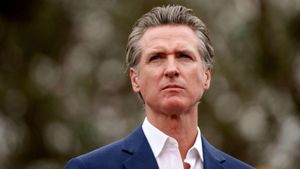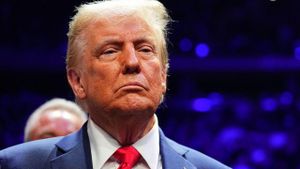Mehmet Oz, known to many as Dr. Oz, finds himself at the center of political maelstrom after President-elect Donald Trump announced his nomination to head the Centers for Medicare & Medicaid Services (CMS). This nomination is stirring significant controversy, primarily because of Oz's extensive financial ties to the healthcare industry, which could pose serious conflicts of interest.
Oz’s financial portfolio is vast and varied, encompassing investments potentially worth millions of dollars across the healthcare sector. His holdings reportedly include substantial ownership stakes in several companies regulated by the CMS, making his prospective role even more problematic. These companies include UnitedHealth Group, CVS Health, and Cigna, all key players within the Medicare Advantage market.
Specifically, financial documents from his previous Senate run indicate he had up to $600,000 invested in UnitedHealth alone. This company is considered one of CMS's primary partners, significantly complicates the possible decision-making processes if Oz ascends to the role. Medicare Advantage, the alternative to traditional Medicare, has been criticized for costing taxpayers more, which raises eyebrows about Oz's prior promotional efforts for such plans during his campaign.
During his unsuccessful Senate campaign last year, Oz faced sharp criticism due to his controversial background as both a television personality and as someone accused of promoting dubious health advice. Critics highlight his history of recommending products with little scientific backing, raising public health concerns.
His past has also caught the attention of those who stress the importance of ethical governance. Critics warn his extensive investments may not allow him to act solely in the best interest of American citizens. For example, should he still hold shares in companies linked to the negotiation of inpatient medication prices, questions of legitimacy and personal benefit would likely arise.
Yet, the financial ties do not end there. The dossier on his business dealings reveals direct interests related to companies involved in the very services CMS oversees. His investment portfolio also subtly indicates ties to biotech and vaccine firms, which add yet another layer to potential conflicts should he be put at the helm.
Oz's nomination has prompted renewed discussions on transparency and accountability within the government. Traditionally, nominees for similar positions would divest their interests or take significant steps to eliminate any conflicts before they are confirmed. For example, other cabinet members, including Treasury Secretary Janet Yellen and Attorney General Merrick Garland, agreed to divest holdings affecting their roles as they assumed office.
Dr. Oz, who was previously endorsed by Trump during his political pursuits, has had his fair share of alarming coverage, with many urging scrutiny concerning his values and motives toward public health. His last attempt at engaging politically involved advocating for Medicare Advantage, which has long been contentious due to its higher cost burden on taxpayers than traditional Medicare.
There’s also concern resulting from statements made by various health associations highlighting how the direction Oz is believed to have taken could jeopardize patients' interests, especially if he proceeds with policies benefiting the private sector over vulnerable populations.
Before his appointment even reaches the Senate for confirmation hearings, reliable critics stress the necessity of examining his past commentary. Oz's tendency to shift perspectives, particularly from his support of the Affordable Care Act to opposing governmental health initiatives, points to ambiguity about his true priorities.
More than just controversy, Dr. Oz's potential role raises fundamental questions around the structure of governance and how policymakers can profit from their governance roles. With healthcare as one of America’s most significant expenses, the outcome of this nomination could set pivotal precedents for interactions between the public sector and the healthcare industry.
Critics also stress the importance of conducting thorough investigations before such pivotal roles are confirmed. They argue this situation poses potential risks not just now but long-term repercussions for healthcare integrity. Given CMS's considerable budget tangibles and influence over key healthcare policies, the nomination is hardly one to overlook.
Critics insist on his involvement and their fears shed light on broader issues about the quality of leadership and sound ethical practice within large governmental sectors. Will the focus remain on healthcare accessibility, or will profit and personal investments of leaders become priorities over the very citizens they serve?
Oz’s past resonates heavily amid these discussions, as his approach to healthcare’s systematic challenges will likely be tested and vetted through rigorous debate and confirmation processes.
For those concerned about the integrity of public health, Oz’s nomination not only revives discussions but shapes perspectives on how health policy aligns with personal wealth and public influence.
To characterize this potential appointment as merely another round of political maneuvering fails to recognize its potential impact on every American using CMS services. Understanding what lies behind the curtain of Oz's financial dealings and political aspirations will be pivotal as the confirmation process commences.
While Oz has yet to publicly clarify his intentions, the existing documentation of his investments demands scrutiny. The CMS oversees significant healthcare funding and influences millions of lives; the stakes are undeniably high for Americans on all fronts.
Overall, the echoes of Dr. Oz’s television fame will level up against the backdrop of practical governance as his supporters defend his innovative take on health policy, and critics brand him as yet another decision plagued by self-interest. With the Senate confirmation looming, both sides are poised to make their case, reflecting the complex relationship between health care, governance, and ethical accountability.



